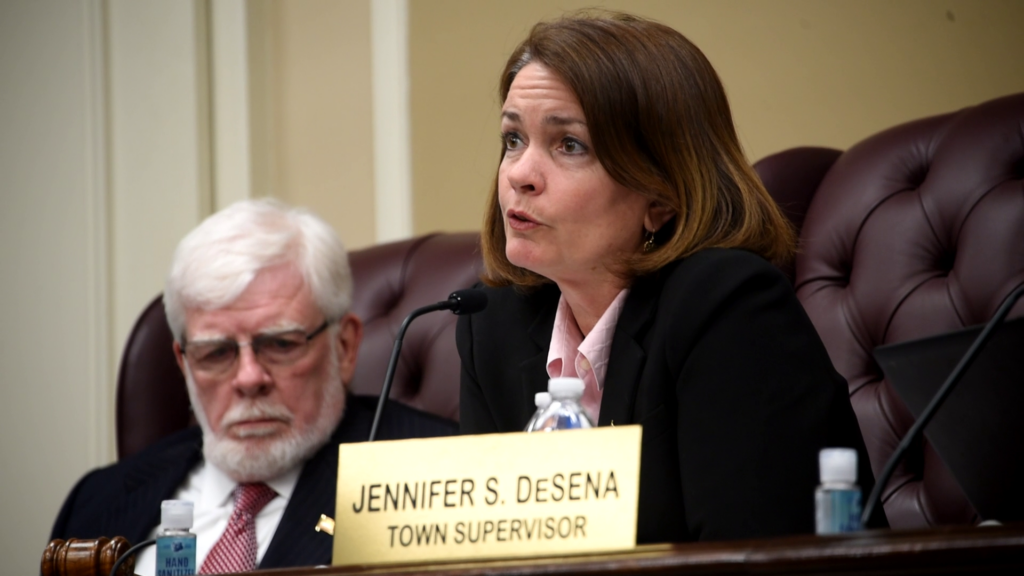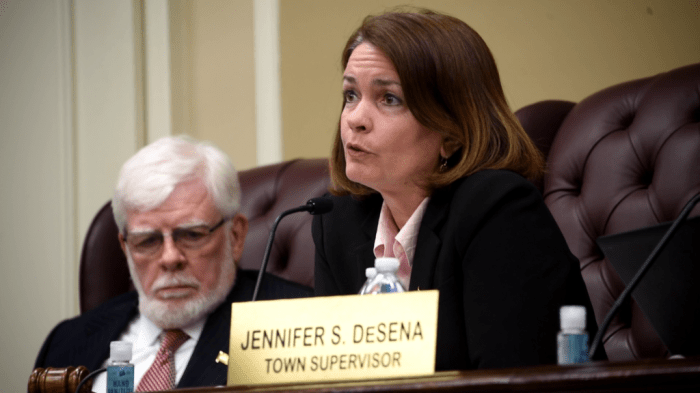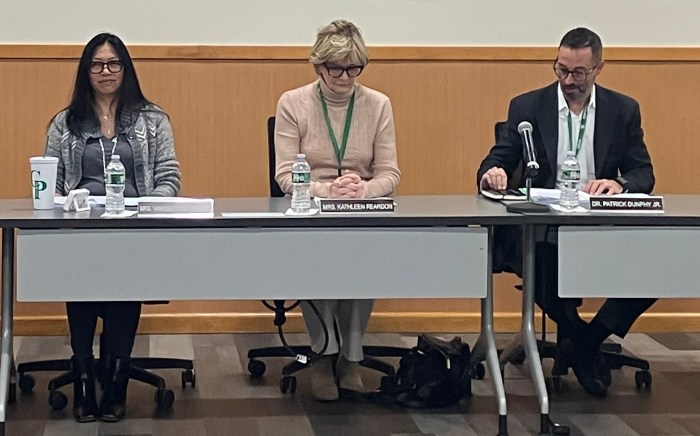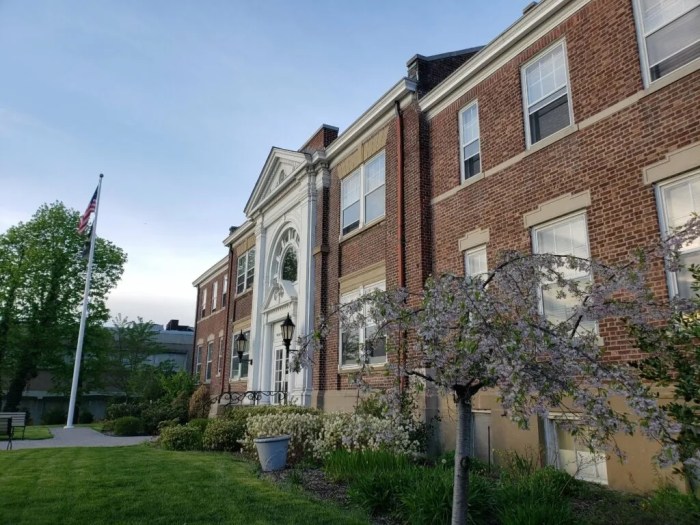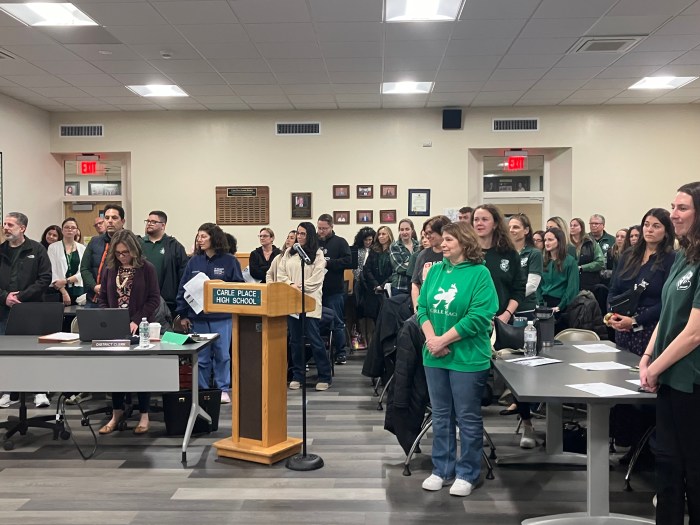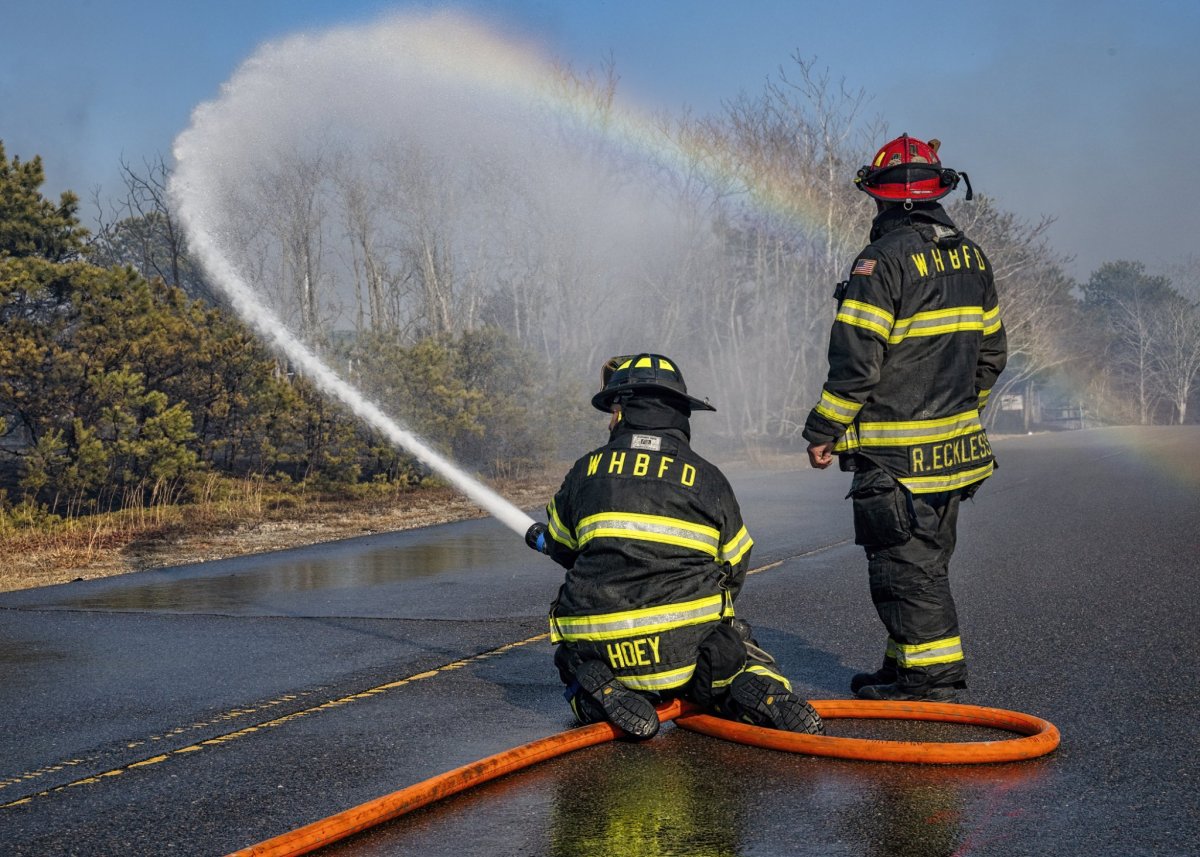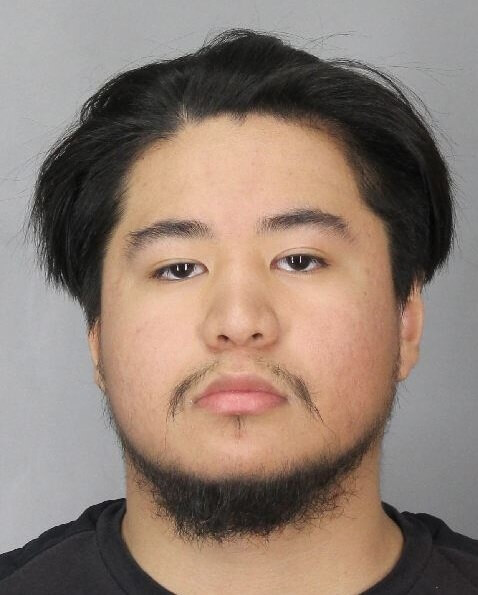The North Hempstead Town Board is saying goodbye to issuing statements on non-town matters after the board Republicans advanced a resolution barring such action – just before a vote was to be taken condemning the Jan. 6 pardons.
“Asking members of the town board to vote on something we have no jurisdiction over, there is no legal effect of anything like that, all it does is cause division and hatred in our community and that is the last thing we want,” Town Supervisor Jennifer DeSena said.
The board rules change was met with hours of public comment, with a majority of residents advocating against it and calling the change undemocratic and censorship. The meeting got rowdy at moments, often with individuals in the audience yelling from their seats at the board and one resident being escorted out by officers.
“I think everybody sees what’s happening,” Great Neck resident Nina Gordon said. “You’re resolution is being used to avoid accountability and dodge a difficult vote on condemning the pardons of Jan. 6 insurrectionists.”
The policy change was passed along party lines, with only board Republicans voting in favor of it.
The resolution took effect immediately, blocking the board from voting on the following resolution to condemn the pardons.
Town Council Member Mariann Dalimonte proposed the resolution, which, if passed, would have issued an official stance by the town board condemning the pardoning of individuals charged or convicted of crimes associated with Jan. 6.
“The people who hurt these capitol police officers do not deserve to be out of jail,” Dalimonte said.
Town Attorney Richard Nicolello said the resolution was filed on Jan. 3 as a “placeholder” without any description of its purpose. He said that on the Friday afternoon before the meeting, Dalimonte updated the resolution to include a statement on the pardons.
“This type of resolution is ripe for abuse,” Nicolello said. “You can have a resolution on every agenda for the rest of the year on pardons, both sides, on immigration, on cultural issues that we fight about, on Kathy Hochul’s cashless bail and so on and so on and so on. But it has nothing to do with the job of the town board.”
In response to Dalimonte’s resolution, Nicolello said another resolution, which had been a placeholder by the supervisor, was submitted to bar the board from issuing resolutions pertaining to non-town matters. This resolution was filed as No. 48, before the Jan. 6 pardon statement filed as No. 49.
“So we did precisely what you did after you did it,” Nicolello said.
He said town resolutions, such as the one condemning the Jan. 6 pardons, do not have any legal effect. He said the policy change narrows the board to act solely within its power.
Nicolello said the town policy mirrors one in place in the Nassau County Legislature for 30 years.
He said the policy does not prohibit council members from issuing statements or taking actions that don’t pertain to the town. He compared this to the county’s rally for Israel after Oct. 7 at Eisenhower Park, which expressed support while not issuing a formal resolution per its rules.
The change also does not impede constitutional rights, still permitting other outlets of speech and assembly, Nicolello said
“But what it does do is force the town board to act only on things within this jurisdiction,” Nicolello said.
Concerned Citizens of New York, a resident government watchdog group, held a rally on the town hall’s front steps prior to the meeting. The group condemned DeSena for changing the rules, calling it an overreach of power that diminishes transparency.
DeSena said the policy change streamlines town resources for matters they have influence over and prevents divisiveness.
However, Council Member Robert Troiano argued that the pardons are a town issue as some of the individuals pardoned are residents. He said this issue is causing fear in the community, and it should be a matter the board takes a stance on.
Council Member Ed Scott, a former New York police officer, said he appreciated Dalimonte’s actions supporting law enforcement but agreed with DeSena that the board should not vote on this statement.
“Of course, I feel for them, Mariann, of course. Every day. I lived it every day,” Scott said. “I’ve been assaulted also as a police officer. But the fact remains: this board votes on what we govern. What we can actually change. I don’t see any sense. I don’t see any purpose of voting on something that we can’t change.”
Port Washington Police Commissioner Sean McCarthy acknowledged that while the resolution condemning the pardons would not directly cause legislative change, it carries a “cumulative, moral effect.”
McCarthy said that when he was hurt in the line of duty, the sound of sirens gave him hope that help was on the way soon. He, too, imparted this wisdom to officers in training, telling them they just need to survive for three or four minutes before help comes.
“But on Jan. 6, those officers faced a situation outside of my experience in law enforcement, and I don’t know if any other agency can face a challenge like that,” McCarthy said. “For hours, they were engaged in hand-to-hand combat, almost of a medieval nature.”
McCarthy said there are not two sides to this issue, saying the individuals arrested for these crimes received their due process.
“It’s not a political argument, and it’s not a left, right argument, and it’s not a blue, red argument, and it’s not a condemnation of our sitting president,” McCarthy said. “It’s just wrong.”




